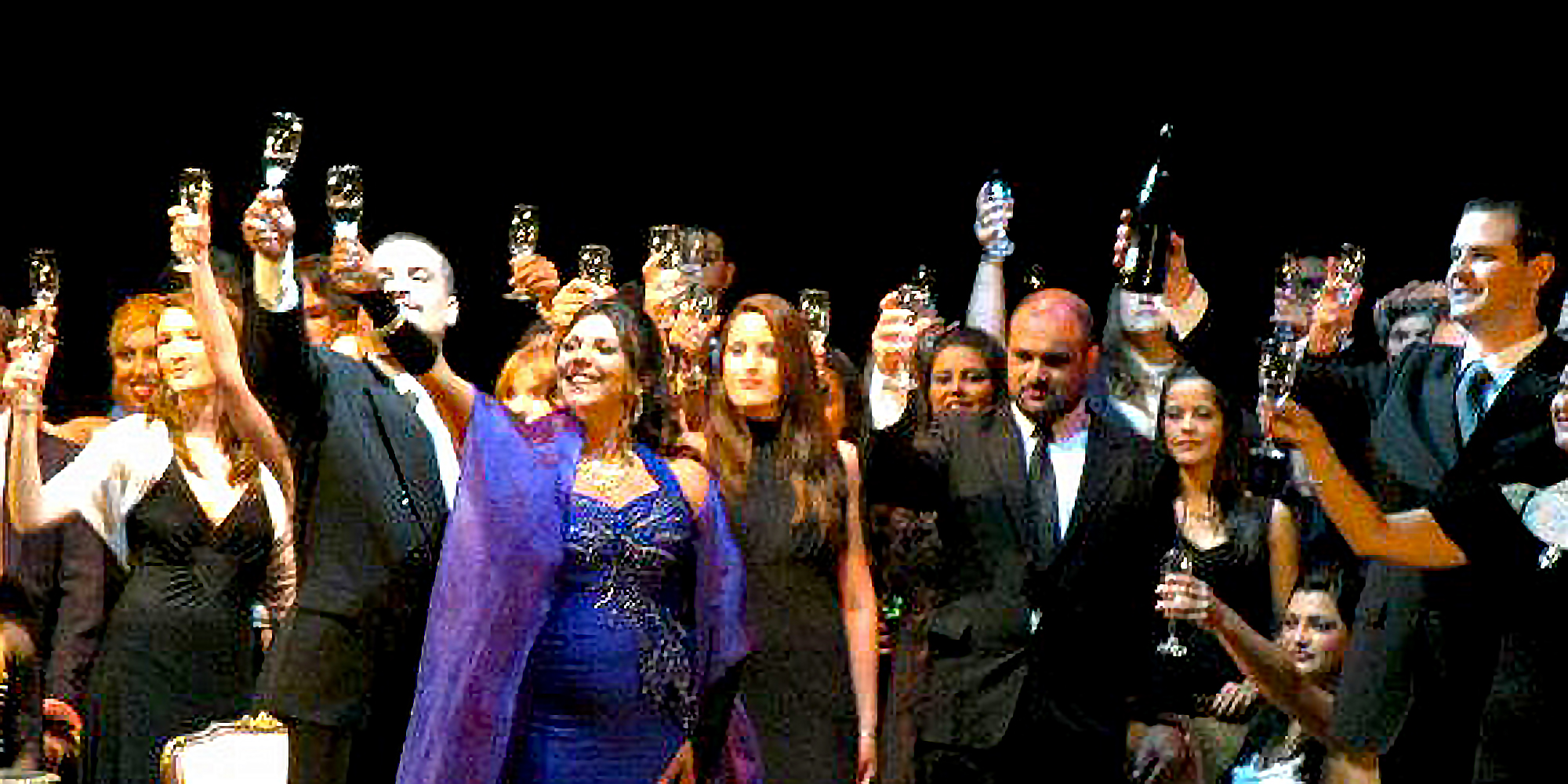“In an outstanding theatrical performance, the Premiere of La Bohème took the stage this Thursday in the last phase of the International Punta Classic Festival at the Solanas Convention Center in Punta del Este. Today and tomorrow will be the last performances of the famous opera by Puccini.
The decision for La Bohème at the 2011 festival was logical from the beginning. Eduardo Casullo (composer and regisseur from Argentina) explained before the premiere that the employment of theatrical details in the staging is one of the unique hallmarks of this production, and that this concept should convince the public of the dramatic world taking place on stage – of course this is not always so easy. Because of this, the artistic secret of good staging and an artistic production can not easily be explained in words.
This festival presents is an excellent opportunity in which to play Puccini’s operas. Puccini had a remarkable sense for drama, and a talent for connecting its story with music. In this production of La Bohème, his ability is fully realized.
In the Premiere, last Thursday, the cast was led by the Mexican singer Eugenia Garza creating an interpretation of Mimi with well measured intensity, while the exuberant role of Musetta was performed by Luz del Alba Rubio. The circle of friends, Rodolfo, Marcello, Colline, and Schaunard was impressively performed with well mannered actions by Marandino Gerardo, Eduardo Garella, and Marcelo Otegui and Nicolas Zecchi. Powerful voices used with emotion blended seamlessly with the historical atmosphere of this opera.
Everyone of the six lead roles succeeded in erasing the boundaries of fiction by being completely immersed in the story set in the Latin Quarter of Paris, 1830. The secret, without a doubt, was that each one of the singers consumed and enjoyed the performance, both vocally and dramatically. Their movement in the closed environment of the attic, in the first and fourth acts, and the opening of the second act, showed their playful exuberance. These performances succeeded despite the limitations of the convention center, and overcame the technical aspects which never impeded the drama and included completion of the set by way of a projection.
The admirable performance of the protagonists and also the work of all other artists on the stage (extras, two choirs, and a military band), despite the nerves of a premiere, displayed energy, concentration, and enthusiasm. Enjoyable, intimate performances, like that of Ephraim Paez’ Benoit, were the reasons for the success of this performance. The opera was impressively played with moments of humor, comedy, and heartbreaking drama.
The orchestra, as in Puccini’s other masterpieces, never serves only as accompaniment. In the last century, both critics and musicologists have praised the theatrical qualities of these scores. In this performance, German conductor Matthias Manasi achieved a very compelling musical interpretation with the orchestra.”
(A. Laluz, El País Montevideo – Uruguay, 15 January 2011)

